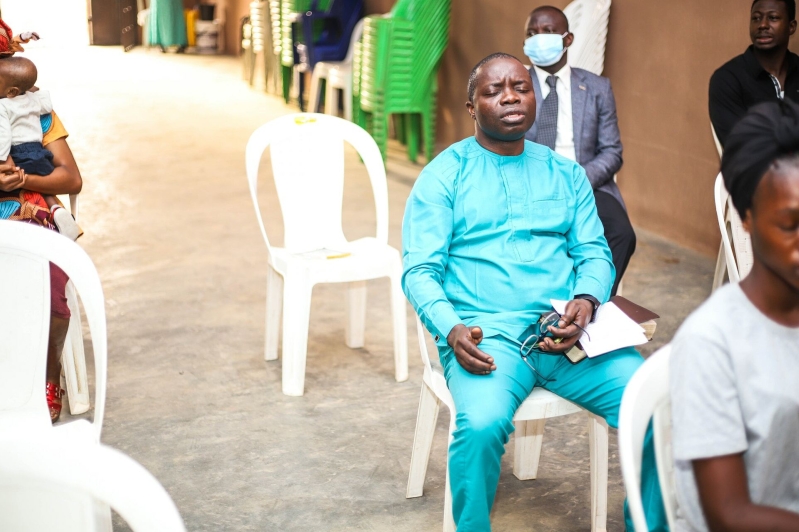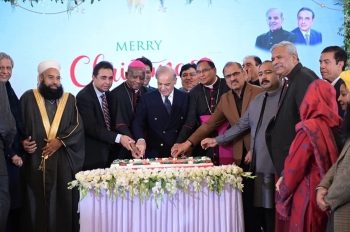
Last Tuesday, Rep. Chris Smith, R-N.J., an outspoken advocate of international religious freedom, read aloud a letter from more than two dozen religious freedom advocates and entered it into the congressional record.
Smith said the letter submitted to over two dozen members of Congress elaborated on "the dire state of religious freedom in Nigeria" and called for "that country to be designated a Country of Particular Concern under the International Religious Freedom Act of 1998."
The U.S. Commission on International Religious Freedom, created and mandated by the International Religious Freedom Act of 1998, has repeatedly urged the State Department to include Nigeria on the CPC list that it crafts on an annual basis. CPC designations are reserved for countries that have "'engaged in our tolerated' severe religious freedom violations." The designation carries the possibility of sanctions or other consequential actions.
Nigeria was placed on the list in 2020 during the final year of the Trump administration, amid outcry from Christian rights activists regarding the violence impacting Christian farming communities in Nigeria's Middle Belt as well as the presence of Islamic terror groups in the country's northeast.
Since taking office in 2021, the Biden administration has come under heavy criticism from religious freedom advocacy organizations for removing Nigeria from its CPC list for two yearsin a row.
Notable signatories include Southern Baptist Convention Ethics and Religious Liberty Commission President Brent Leatherwood, former Congressman Frank Wolf, International Christian Concern President Jeff King, Faith and Freedom Coalition Executive Director Timothy Head, Family Research Council President Tony Perkins, former U.S. Ambassador-at-large for International Religious Freedom Sam Brownback, Global Christian Relief President and CEO David Curry and Save the Persecuted Christians Executive Director Dede Laugesen.
The letter cited data from the religious freedom advocacy organization Open Doors, finding that "90 percent of all the Christians killed for their faith worldwide last year were killed in Nigeria." According to Aid to the Church in Need, 100 Catholic priests have been kidnapped since the beginning of 2022, and 20 of them were murdered. The letter also stated that more than 17,000 Christian churches had been burned since 2009, with several of them set ablaze with congregants inside.
The letter highlighted how USCIRF determined that the Nigerian government has "routinely failed to investigate these attacks and prosecute those responsible, demonstrating a problematic level of apathy on the part of state officials."
The signatories also detailed how "authorities also engage directly in religious persecution" by enforcing Islamic blasphemy laws against Christians.
"These laws have been accompanied by a routine grant of impunity for extrajudicial attacks against their perceived violators," the letter reads. "Last year, there was the unprosecuted mob killing of student Deborah Emmanuel Yakubu after she was accused of blasphemy and the unprosecuted serious death threats against the Sultan of Sokoto, Sokoto's Catholic bishop, and Rhoda Jatau, a Christian woman, all three of whom were targeted for expressing disapproval of Yakubu's murder."
"As Africa's most populous country and its largest economy, Nigeria wields significant influence in Sub-Saharan Africa," the letter concluded. "By allowing religious persecution to proliferate within its borders, Nigeria is compounding already heightened regional insecurity. Both American interests and the International Religious Freedom Act require a response."
The advocates also called on the lawmakers to back House Resolution 82, introduced by Smith and Rep. Henry Cuellar, D-Texas, calling on the State Department to list Nigeria as a CPC and appoint a special envoy for Nigeria and the Lake Chad Region.
Seventeen other lawmakers have signed on as cosponsors to the legislation in addition to Smith, Cuellar and Aumua Amata Coleman, a non-voting delegate from American Samoa. The legislation was introduced on Jan. 31 and referred to the House Foreign Affairs Committee, which has not voted on it yet.
In its most recent annual report released in May, USCIRF again recommended placing Nigeria on the CPC list. The U.S. State Department has yet to release a list of CPCs for 2023.
Originally published by the Christian Post





